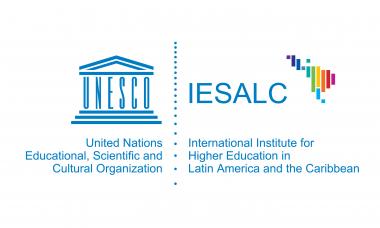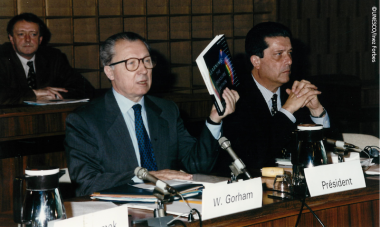Part of a UNESCO tradition
The Futures of Education: Learning to Become is the latest in a series of global reports commissioned by UNESCO to grapple with the challenges that the future holds in store and to inspire change and issue policy recommendations for education.
The first of these reports, Learning to Be: the world of education today and tomorrow was developed in 1971-1972 and prepared by a commission chaired by Edgar Faure, a former Prime Minister and Minister of Education of France. The Learning to Be report warned of the risks of inequalities, privation and suffering and emphasized the universal features education. The Faure report called for the continued expansion of education and for lifelong education.
From 1993-1996 a second international commission under the leadership of Jacques Delors, former President of the European Commission and former French Minister of Economy and Finance, prepared a report that was published as Learning: The Treasure Within. This report further emphasized the importance of a humanistic approach to education and established “the four pillars” of education, namely: learning to be, learning to know, learning to do, and learning to live together.
Among other important UNESCO publications on education in the intervening years is the 2015 report. Rethinking Education: towards a global common good? which proposed a rethinking of education and knowledge as global common goods.
All of these initiatives, as well as UNESCO’s work broadly across the Education Sector, inform the global report currently under preparation. The Futures of Education: Learning to Become report (forthcoming, late 2021) will build on this tradition and lay out an agenda for education policy dialogue and action at multiple levels.
Shaping global priorities for the future

- UNESCO’s International Institute for Higher Education in Latin America and the Caribbean (IESALC) has launched a Futures of Higher Education project that supports the Futures of Education through a broad expert and public consultation process and research literature review on how higher education can contribute to better futures for all in 2050.

- The Dehli-based UNESCO Mahatma Gandhi Institute of Education for Peace and Sustainable Development (MGIEP) is embarked on an International Science and Evidence based Education (ISEE) assessment that is also contributing to the UNESCO Futures of Education initiative.

- UNESCO’s Futures of Education initiative has also contributed to the #ShapingOurFuture dialogue that took place on the occasion of the 75th anniversary of the United Nations. More information on this year of dialogue is available here.
Source : https://en.unesco.org/futuresofeducation/initiative


